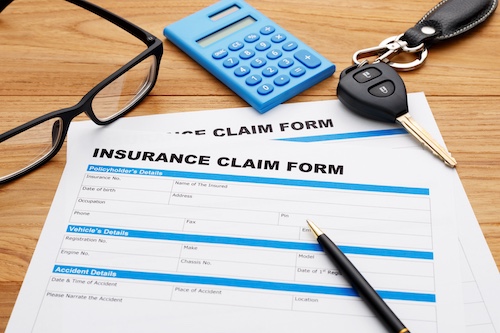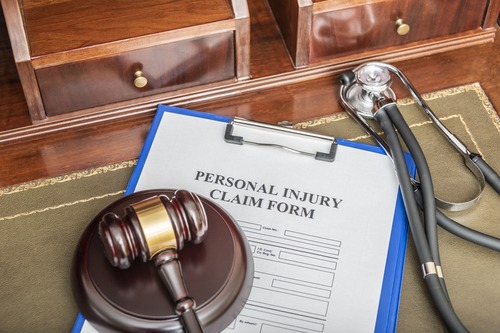Why Georgia Car Seat Laws Matter After a Crash
Car seat laws in Georgia are more than guidelines. They are safety rules that can affect your child’s protection and your legal rights after a car accident. Whether your child was in a rear facing seat, forward facing seat, or booster seat, how they were restrained matters. Understanding Georgia car seat laws and using the correct safety seat can reduce the risk of serious injury and strengthen your position in a legal claim.
In this blog, we explain how Georgia car seat laws apply in a car accident, what injuries can result from improper restraint, and why working with an experienced Union City car accident attorney can help protect your rights and your child’s safety.
Overview of Georgia Car Seat Laws
Georgia car seat laws set clear rules for how children must be restrained in a motor vehicle. These laws are based on age, height, and weight to reduce the risk of serious injury in a car accident.
Rear Facing Car Seat Requirements
According to Georgia law, infants must ride in a rear facing car seat until they are at least one year old and weigh at least 20 pounds. However, car seat safety experts recommend keeping a child in a rear facing position as long as the seat allows, often until age two or more. A properly installed rear facing seat protects the child’s neck and spine in a crash.
Forward Facing Car Seat Use
Once a child outgrows the rear facing seat based on the seat manufacturer’s height and weight limits, they should transition to a forward facing car seat. This seat should have a five point harness system and be installed in the back seat of the vehicle. Children should remain in a forward facing seat until they reach the maximum weight or height limit allowed by the seat.
Booster Seat Requirements
Georgia law requires children under 8 years of age to use a booster seat if they have outgrown a forward facing seat. The booster seat must be used with a lap and shoulder belt, not a lap belt only. The booster seat lifts the child’s body so that the seat belt fits correctly across the upper thighs and chest.
When a Child Can Use a Seat Belt
Children can use a regular seat belt in a passenger seat once they are at least 8 years old and 4 feet 9 inches tall. The lap belt should lie across the upper thighs, and the shoulder belt should cross the chest and shoulder, not the neck or face. Georgia law requires children who do not meet these size requirements to remain in either a car seat or booster seat.
Back Seat Placement Requirement
Georgia car seat laws require that all children under the age of 8 must ride in the back seat unless the vehicle has no rear seats or all rear seats are occupied by other children. Placing the child in the back seat reduces the risk of serious injury in a car crash.
Car Seat Compliance During a Motor Vehicle Accident
Proper use of a car seat or booster seat can impact both the safety of a child and the legal outcome after a motor vehicle accident.
Legal Consequences of Improper Use
If a child is improperly restrained during a car crash, the driver may face penalties under Georgia law. Law enforcement officers can issue citations if a child is not in a properly installed safety seat or if the seat is not suitable for the child’s age, weight, or height. A violation may also affect fault or liability in a legal claim. Courts may consider whether the child was in a rear facing seat, forward facing seat, or booster seat as required by law.
Impact on Personal Injury Claims
Insurance companies may reduce or deny compensation if the child was not properly restrained in a car seat or booster seat. Using an expired or damaged seat can weaken a claim, even if the driver of the other vehicle caused the crash. A child passenger who was not using a lap and shoulder belt or who was seated in the front seat before legal age may be viewed as improperly restrained, creating legal complications.
Importance of Proper Installation
Installing the car seat correctly is just as important as using the right type. A safety seat must be secured with either the vehicle’s seat belt system or LATCH attachments. The seat must also be positioned at the correct angle, and the chest clip should be placed at armpit level. An incorrectly installed car seat can fail to protect the child’s body in a crash and can be used against you in court.
Documentation and Evidence
After a motor vehicle crash, it is important to document the condition and type of child passenger safety seat used. Take photos of the seat, its placement, and any visible damage. Keep records of the seat’s purchase date, manufacturer information, and expiration date. This information may support your case if the crash leads to a legal dispute.
Role of a Car Accident Attorney
A car accident attorney can help determine whether Georgia car seat laws were followed and how compliance affects your claim. If the other driver was at fault and your child was properly restrained, the attorney can use that evidence to support full compensation. If there is a dispute about car seat safety or seat belt use, legal guidance becomes critical.
Injuries and Safety Risks: Why Proper Restraint Matters
Using the correct car seat or booster seat can greatly reduce the risk of serious injury or death during a motor vehicle crash.
Higher Risk of Injury When Improperly Restrained
Children who are improperly restrained face a higher chance of injury in a car accident. Without a properly fitted child passenger safety seat, the child’s body may be thrown forward or sideways. A loose lap belt or missing shoulder belt can cause injuries to the head, neck, or abdomen. The front seat also poses a serious risk to young children due to airbag deployment.
Common Injuries in Car Accidents
When a child is not secured in a car seat or booster seat, common injuries include head trauma, spinal injuries, broken bones, and internal bleeding. These injuries are more likely when the seat is expired, damaged, or installed incorrectly. Rear facing car seats help protect the neck and spine, while forward facing car seats and booster seats with a five point harness help secure the chest and hips.
Safety Benefits of Proper Restraint
A properly installed safety seat reduces the force of impact on a child’s body during a motor vehicle accident. The chest clip and harness keep the child in position, preventing ejection from the vehicle seat. Booster seats allow the lap and shoulder belt to fit correctly across the upper thighs and chest, which protects vital organs and reduces injury.
Manufacturer Guidelines and Safety Standards
Car seat manufacturers set height and weight limits for each seat model. These guidelines help ensure that either a car seat or booster provides the best protection. Using a seat beyond its limits can cause the seat to fail during a crash. Following the safety instructions and checking expiration dates is critical for every parent and caregiver.
Importance of Ongoing Checks
Even if a seat was installed correctly once, it should be checked regularly. Movement, wear, and loose straps can reduce effectiveness. Replace any expired or damaged seat. Never use a secondhand seat without knowing its history. Keeping your child properly restrained at all times is the most effective way to protect their life in a crash.
Contact an Experienced Union City Car Accident Lawyer ASAP!
If your child was injured in a car accident and you have questions about Georgia car seat laws or how they may affect your claim, our team at GMV Law Group is ready to help. We understand how important your child’s safety is, and we are committed to holding negligent drivers accountable.
Contact us at 404-975-4878 for a free case consultation today!







